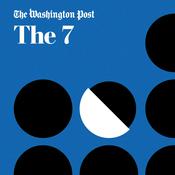190 episodes
- BBC Trending's podcast feed is closing, but we'll be publishing new episodes in the BBC World Service's Documentary Podcast from now on. Search for The Documentary wherever you get your BBC podcasts, and subscribe to get new episodes of BBC Trending along with a range of exciting new documentaries from around the world.
- Fighters from dissident armed groups in Colombia are using TikTok to glorify their lives as guerrillas and recruit youngsters.
These armed groups didn't like the terms of a peace treaty negotiated between the Revolutionary Armed Forces of Colombia (FARC) and the government in 2016, and they kept fighting against the Colombian government. These groups make their money from illegal businesses.
Their videos have struck a chord with teens, particularly in rural areas like the Cauca region in west Colombia. Although not all the videos actively offer jobs, there are hundreds showing off what they portray as a slice of life inside the guerrilla: money, cars, guns, women, community and purpose. They do not emphasise the dangers associated with the lifestyle.
So how popular are these TikToks and what does it mean for Colombia that there’s tonnes of them, easily found by young people with smartphones across the country?
Presenter: Laura Garcia and Rachelle Krygier
Producer: Jonathan Griffin
Studio Manager: Annie Gardiner
Editor: Flora Carmichael
Music: Bloque Occidental - Carlos Carrillo - Jusper Machogu is a farmer from southwestern Kenya who describes himself as a “climate sceptic”: he wrongly claims that climate change is a “scam” or a “hoax” designed to hold Africa back. On social media, he has also become known as a staunch defender of fossil fuel exploration in Africa.
His views have caught the eye of those in the West who, like him, deny the overwhelming scientific consensus on global warming. They have helped him grow his following and spread his message globally. But, in doing so, has Mr Machogu unwittingly become a tool for the fossil fuel industry? And, on a rapidly warming planet, just how dangerous is the message of social media influencers like him?
Presenter/producer: Marco Silva
Editor: Flora Carmichael - Farmers' protests have been erupting across Europe, and on February 20th one image from a protest in Poland went viral. It showed a tractor carrying a soviet flag and bearing a slogan calling on Russian President Vladimir Putin to ‘bring order to Ukraine, Brussels and our rulers.’ The man driving the tractor was arrested and is currently awaiting trial. After the image was released Poland’s foreign ministry spokesperson released a statement warning of attempts to take over the country’s agricultural protest movement by extreme and irresponsible groups ‘possibly under the influence of Russian agents.’ In this episode of BBC Trending, we attempt to track down the man behind the banner. Who is he? And what’s the evidence for Russian involvement in, or amplification of, farmers’ protests in Poland and beyond?
- In a viral thread posted on X in January this year, a 23-year-old Russian man claims he used ChatGPT to filter through and chat thousands of women on Tinder, eventually proposing to one that was selected by the algorithm.
The scale and success of his experiment sparked scepticism. Some raised doubts about the technical plausibility of it, while others voiced concerns about the ethical implications of such an endeavour.
In an attempt to better understand his experiment, BBC Trending interviewed the Russian man and asked experts what they made of it.
As AI becomes more advanced and accessible, the story also highlights broader concerns about the future of this technology in online dating. How will AI reshape the landscape of online dating in the coming years? What biases may be inherent in its algorithms? Is using AI in this manner a form of catfishing?
Presenter: Olga Robinson
Producer: Marta Pausilli
Editor: Flora Carmichael
More News podcasts
Trending News podcasts
About Trending
In-depth reporting on the world of social media.
Podcast websiteListen to Trending, The Daily and many other podcasts from around the world with the radio.net app

Get the free radio.net app
- Stations and podcasts to bookmark
- Stream via Wi-Fi or Bluetooth
- Supports Carplay & Android Auto
- Many other app features
Get the free radio.net app
- Stations and podcasts to bookmark
- Stream via Wi-Fi or Bluetooth
- Supports Carplay & Android Auto
- Many other app features


Trending
Scan code,
download the app,
start listening.
download the app,
start listening.






































